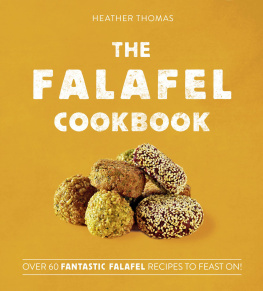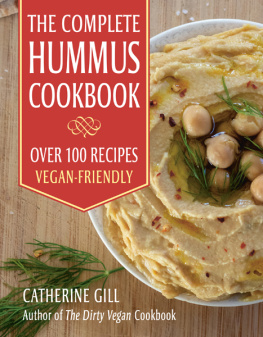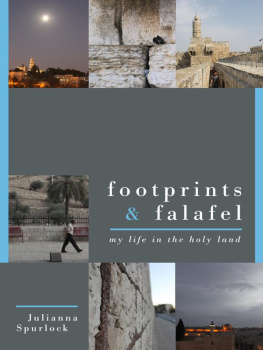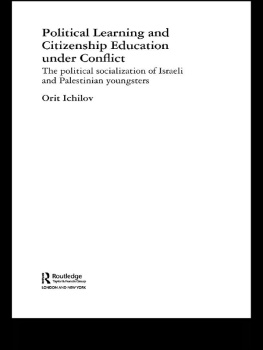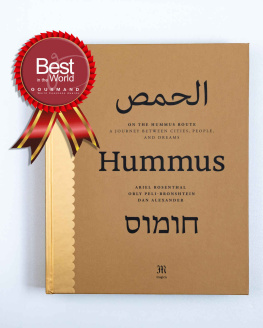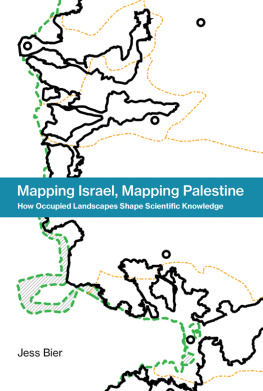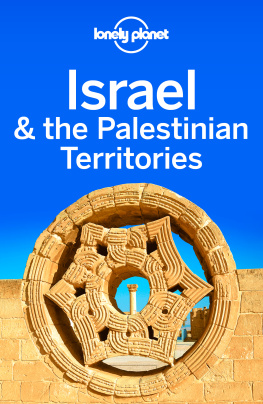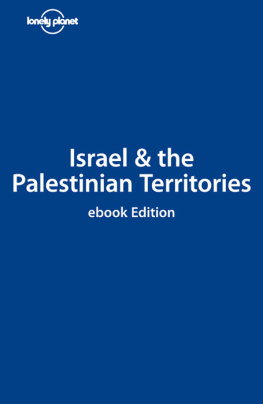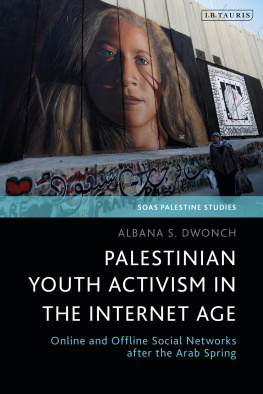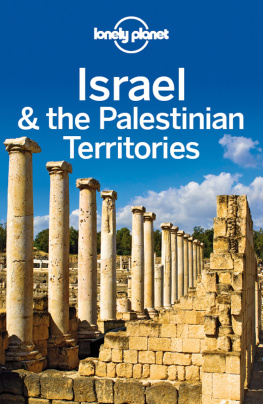Gvion - Beyond hummus and falafel: social and political aspects of Palestinian food in Israel
Here you can read online Gvion - Beyond hummus and falafel: social and political aspects of Palestinian food in Israel full text of the book (entire story) in english for free. Download pdf and epub, get meaning, cover and reviews about this ebook. City: Berkeley;Israel, year: 2012, publisher: University of California Press, genre: Politics. Description of the work, (preface) as well as reviews are available. Best literature library LitArk.com created for fans of good reading and offers a wide selection of genres:
Romance novel
Science fiction
Adventure
Detective
Science
History
Home and family
Prose
Art
Politics
Computer
Non-fiction
Religion
Business
Children
Humor
Choose a favorite category and find really read worthwhile books. Enjoy immersion in the world of imagination, feel the emotions of the characters or learn something new for yourself, make an fascinating discovery.

Beyond hummus and falafel: social and political aspects of Palestinian food in Israel: summary, description and annotation
We offer to read an annotation, description, summary or preface (depends on what the author of the book "Beyond hummus and falafel: social and political aspects of Palestinian food in Israel" wrote himself). If you haven't found the necessary information about the book — write in the comments, we will try to find it.
Gvion: author's other books
Who wrote Beyond hummus and falafel: social and political aspects of Palestinian food in Israel? Find out the surname, the name of the author of the book and a list of all author's works by series.
Beyond hummus and falafel: social and political aspects of Palestinian food in Israel — read online for free the complete book (whole text) full work
Below is the text of the book, divided by pages. System saving the place of the last page read, allows you to conveniently read the book "Beyond hummus and falafel: social and political aspects of Palestinian food in Israel" online for free, without having to search again every time where you left off. Put a bookmark, and you can go to the page where you finished reading at any time.
Font size:
Interval:
Bookmark:
CALIFORNIA STUDIES IN FOOD AND CULTURE
Darra Goldstein, Editor
Beyond Hummus and Falafel
The publisher gratefully acknowledges the generous support
of the General Endowment Fund of the University of
California Press Foundation.
and Falafel
Social and Political Aspects
of Palestinian Food in Israel
Liora Gvion
Translated by David Wesley and Elana Wesley

The author would like to thank the Kibbutzim College of Education for its support for this project.
University of California Press, one of the most distinguished university presses in the United States, enriches lives around the world by advancing scholarship in the humanities, social sciences, and natural sciences. Its activities are supported by the UC Press Foundation and by philanthropic contributions from individuals and institutions. For more information, visit www.ucpress.edu .
University of California Press
Berkeley and Los Angeles, California
University of California Press, Ltd.
London, England
2012 Liora Gvion
Originally published in Hebrew as Be-govah ha-beten:
ha-hebetim ha-hevratiyim veha-politiyim shel
ha-mitbah ha-Arvi be-Yisrael.
Library of Congress Cataloging-in-Publication Data
Gvion, Liora.
[Be-govah ha-beten. English]
Beyond hummus and falafel : social and political aspects of Palestinian food in Israel / Liora Gvion ; translated by David Wesley and Elana Wesley.
p. cm. (California studies in food and culture ; 40)
Originally published in Hebrew as: Be-govah ha-beten : ha-hebetim ha-hevratiyim veha-politiyim shel ha-mitbah ha-Arvi be-Yisrael.
Includes bibliographical references and index.
1. Cooking, Arab. 2. Food habitsSocial aspectsIsrael. 3. Palestinian ArabsIsraelAttitudes. I. Title.
TX725.M628G8513 2006
394.12095694dc23
2012026489
Manufactured in the United States of America
21 20 19 18 17 16 15 14 13 12
10 9 8 7 6 5 4 3 2 1
In keeping with a commitment to support environmentally responsible and sustainable printing practices, UC Press has printed this book on 50-pound Enterprise, a 30% post-consumer-waste, recycled, deinked fiber that is processed chlorine-free.
It is acid-free and meets all ANSI/NISO (z 39.48) requirements.
In memory of my parents:
Margalit Gvion (born as Paula Heitner) and
Raphael Gvion (born as Felix Grynbaum)
A couple of months after my book came out in Israel, I received a phone call from a Palestinian journalist who works for a major local television station. We need to talk, he said in a tone I could not interpret with certainty. Having done many interviews as part of my research, I tried to get a sense of what the conversation was going to be about. He was, after all, the first and only Palestinian journalist who had expressed interest in my book.
More than being concerned about the nature of our talk, I was curious. A number of blog comments written by Palestinians in reference to reviews of my book were quite critical, to say the least, about the fact that a Jewish woman dared writing about our food, as they put it. We are tired of being folklorized and looked down on, said others. It made me feel uncomfortable. I had not intended to folklorize Palestinian food culture nor to look down on it while also capitalizing on it. If there was one thing I was proud of, it was my success in detaching Palestinian culinary knowledge from its folklorized version and constructing its narrative in a way that included all its complexities and hidden political dimensions.
Why did you want to talk to me? was my first question to the Palestinian journalist when we finally met. He looked a little uncomfortable as he told me that, upon receiving my book from a Jewish friend, he, too, had bristled at the idea of his culinary narrative being written by a Jewish scholar. He was tired of being an object of scientific investigation, of being observed by outsiders, especially those who claimed entitlement to the land he felt was his. The friend, I was told, promised he would buy the journalist dinner at a good restaurant in Tel Aviv should he still think, after reading the book, that the author had offended either the Palestinian people or their food culture. I was looking forward to having this dinner, the journalist explained, but about halfway through the book, he continued with a smile, I had to admit that I, too, had fallen into ethnocentric pitfalls. When I asked what made him change his mind, he said, Your interviewees told you things we never tell Jews, and you did not hide it from your readers. You just brought the reality straight to their faces. I do not think I have ever been moved by a readers comment as much as I was moved by this observation. This particular compliment made me aware of the various attributes that, I believe, make this book important for both Israeli and American readers.
When I first started researching the Palestinian kitchen in Israel, I encountered a lot of resentmentmostly from political activists, but also from some colleagues, both Jews and Palestinians, who questioned the legitimacy of my study. Many of them felt it was not proper for a Jewish Israeli woman to penetrate the Palestinian kitchen. Their cuisine is for them to study was a sentence I heard throughout my fieldwork. No answers were given to my questions: Why is it okay for Jews in general, and Jewish men in particular, to study Palestinians political views, voting patterns, incomes, or educational achievementsbut not their culinary culture? Why would my study encourage the appropriation of Palestinian dishes, while studies on marriage or family patterns were not seen as an obstacle to womens mobility or a questioning of their virtues?
To this day, I am not sure what caused these reactions. Was it my determination to touch on the topic of fooda topic many scholars see as frivolous and unworthy of sociological investigation? It was only recently that I realized the reaction was something more than the general disrespect food scholars often encountered. In fact, for many Palestinians food was far from frivolous. Palestinian food and eating habits were one of the few topics Jewish scholars had not touched on, and thus food represented one dimension of life over which Palestinians had total control. As I proceeded with my study, I came to understand that social, political, financial, and gender issues lay behind daily food practices, and that food revealed social relations, tradition, pride, and resistance, all put in a pot and cookednot necessarily to everyones likinginto a multilayered repast. I was not a natural guest at these meals. I was an intruder who worked her way through pots, pans, pantries, and spices, a guest who asked questions, helped children with their homework, accompanied women in their shopping and to their social gatherings, and always accepted an invitation to join a meal.
I believe that my reading of Palestinian cuisine and the social practices involved in food production, as acknowledged by the Palestinian journalist, reveals how limited the contacts and interactions between Jews and Palestinians in Israel are. The astonishment expressed by the Palestinian journalist at my understanding of Palestinian attitudes toward food also emphasizes the political dimension that underlies all interactions between the two peoples. The two groups accept each other as individuals; sometimes friendships are even formed and sustained. At the same time, Jews have difficulty accepting Palestinians as a group that is entitled to social recognition even as they preserve their distinctive features. I met Palestinians who accused my people of showing disrespect to and a lack of interest in their food culture, and who feared that the lack of mutual respect between us would hinder the chances of Palestinian citizens realizing their full civil and political rights.
Next pageFont size:
Interval:
Bookmark:
Similar books «Beyond hummus and falafel: social and political aspects of Palestinian food in Israel»
Look at similar books to Beyond hummus and falafel: social and political aspects of Palestinian food in Israel. We have selected literature similar in name and meaning in the hope of providing readers with more options to find new, interesting, not yet read works.
Discussion, reviews of the book Beyond hummus and falafel: social and political aspects of Palestinian food in Israel and just readers' own opinions. Leave your comments, write what you think about the work, its meaning or the main characters. Specify what exactly you liked and what you didn't like, and why you think so.

